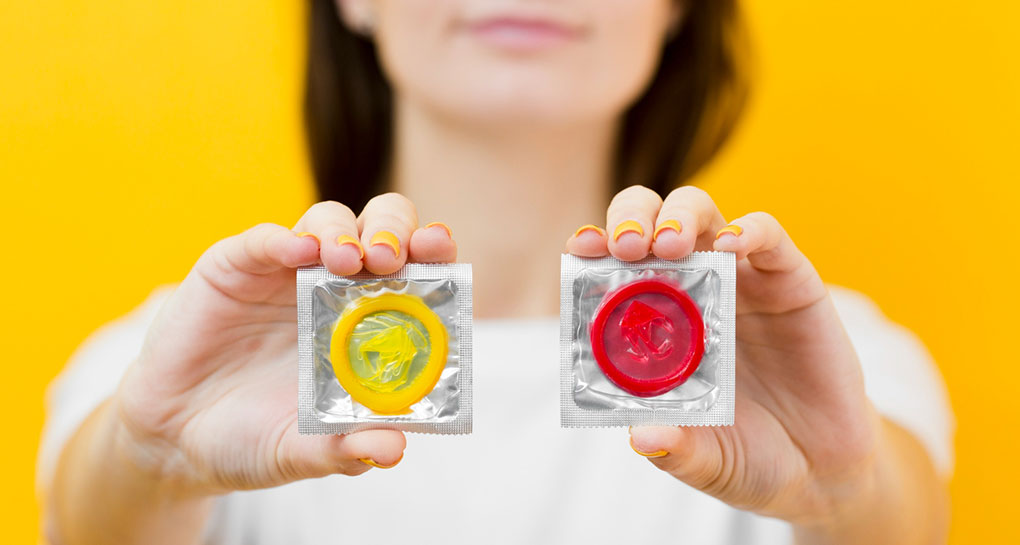There is no magic formula that will assess the risk of a sexual situation on a scale of 1 to 100. How risky something is depends on dozens, maybe hundreds of factors: what sexual activities are involved, who is doing what to whom, what, if any, risks are present, what you and/or your partners are doing to minimize those risks in the moment and in the long term, and then there is an element of chance or fate or however you happen to understand what it means when a particular outcome follows an activity.
But here are some questions you can ask yourself in advance of having sex that may help you assess the potential risk to yourself. There are many ways we can get hurt by sexual encounters and many kinds of sexual risk. What these are doesn’t just depend on the type of sex you’re having, or whether or not you’re using certain kinds of protection.
But some risks are easier to identify than others, and certainly reducing your risk of STDs is one that can be assessed with greater (but never exact) accuracy.
How can I protect myself and my partner(s) from STDs?
You can use condoms and barriers like dental dams for penetration and/or oral sex. If you’re HIV negative you may want to consider PrEP. You can reduce your risk by thinking in advance about what you know you want, or might want to do with your partner, and then learn about the STD risk for those behaviors. Maybe you’ll only stick to some sexual activities with a new partner, or maybe you’ll only do certain things with barrier protection.
Again, there’s no formula for total protection, so thinking and strategizing is important (it can also be fun fantasy fodder).
What is my level of interest and motivation?
Why do you want to make this sexual move or have this sexual encounter? Are you all hot and bothered for someone you’ve been lusting after for months? Is it out of revenge, or pity, or boredom, or curiosity? Are you going to have sex with an ex-partner because it’s easy, comfortable, a sure thing? Knowing your motivation won’t necessarily change your actions, but it can be helpful, and may result in better decision making.
What are my limits?
How far do you imagine taking this particular sexual situation? Are you looking for a relationship, a one night stand, or something in between. Do you know what kind of sex you will and won’t have in this situation? These limits may change, and often they do in the moment, but thinking about them beforehand can give you some guidelines for yourself going into the situation, and in the moment you can gauge your comfort level by changing your limits. It can also help you prepare to have the things you need to reduce the risk of STD transmission and still have the sex you want.
What do I think about the other person?
Many of us choose lousy sexual partners. Sometimes we pick people who are mean to us, who make us feel bad about ourselves, and who we would never tolerate as a friend. We do this for all sorts of reasons, but in terms of risk assessment, take some time to contemplate whether this person is worthy of your sexual attention. You deserve love and sexual pleasure, and to be treated the same way you treat others. Pick your sexual partners with that in mind.
What are some of the things that could “go wrong”?
In many situations this won’t apply, and you’ll have nothing but rosy feelings. But what if the person you’re longing for is a friend of a friend. Or works with you? Or is a well known local politician? You shouldn’t necessarily let these answers stop you from acting, but give yourself the opportunity to imagine the obstacles, as it can help you come up with ways to work around them in the future.
What will I do if things “go wrong”?
This is another question most of us don’t think about at the beginning of a sexual relationship. Hopefully you have a good friend who you can go to in times of trouble/doubt. Some of us have family members who are comfortable enough with sex to be there for us when we feel we’ve made a bad choice. For some people it might be about knowing how to take time for yourself, writing in a journal, taking baths, screaming into a pillow.
Where can I get more support around making good sexual choices?
If you need to know more about STDs, want to find a good counselor, or are trying to find places to meet people, take some time to educate yourself, find a supportive community, and build up your own private list of resources. Your friends will all be the beneficiaries of this work, and you’ll be amazed at how many come to you for help once you’ve done this for yourself.












